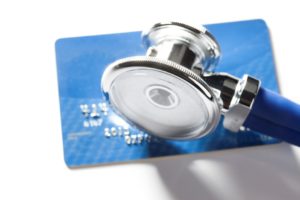Medical identity theft has become far more profitable.
Reading the latest story related to Internet identity theft, or watching the evening news, you’ll likely hear about crimes involving financial data, such as credit card information. While this is most definitely a big issue, in the eyes of most hackers, your credit card information is no longer as valuable as your medical information. Medical identity theft (MIT) is growing, which should cause consumers to wonder whether their personal information is being properly protected.
What is medical identity theft?
The Medical Identity Fraud Alliance (MIFA), defines MIT as the theft of an individual’s health information and other identifiable information in order to receive medical services or goods for financial gain.
Possible concerns related to medical identity theft
While financial identity theft can cause significant strain and stress, medical identity theft can actually create dire health concerns in certain circumstances. When hackers use a victim’s medical information to obtain prescription drugs or services, this information could be combined with the victim’s electronic health records, leading to disastrous future consequences.
Factors contributing to the increase in medical identity theft.
- Increasing value of medical records – The black market value of medical records is much higher than the value for basic personal information, such as social security numbers or credit card information. According to a piece published by Bloomberg, a stolen credit card is worth just a few dollars, compared to medical records, which fetch around $50.
- Conversion of medical records – As health providers look to transfer the medical data of their patients to digital records, this information has become accessible to external hacking attempts. Starting in 2009, the U.S. government started offering a financial incentive for health facilities to convert to electronic health records, which has helped drive the push to digital.
While there are security policies in place to protect medical information, data breaches still occur. The Ponemon Institute, which studies medical theft values, assesses the yearly impact from medical identity theft at more than $11 billion dollars.
- Affordable Care Act fraud – When the ACA website was first launched, many Americans were exposed to medical identity fraud. The enrollment site had issues, including instability, and hackers quickly began to target victims with phone calls and emails to coax them into giving out their social security number and other personal information.
- Insider threats –The Ponemon Institute also reports that 35 percent of medical theft cases were the result of family members using a victim’s insurance information. Many of these violations go unreported, but still contribute to the widespread problem with medical identity theft in our country.
What does the future look like for medical identity theft?
The medical industry still has a long way to go if it wants to mitigate the disastrous consequences of widespread medical identity theft. The financial sector has spent billions of dollars over the past few years to shore up their systems to better respond to the issue, and it now looks like the medical industry will need to invest in and adopt new technologies to help reduce the number of data breaches that occur each year.
For more information on identity theft and other issues related to securing critical information in today’s online environment, contact the team at CloudHesive a call at 800-860-2040 or fill out our online contact form.




